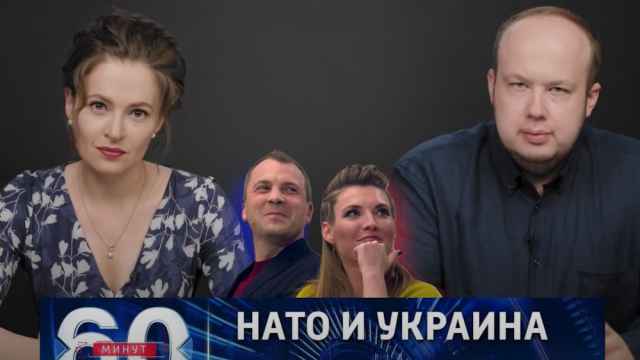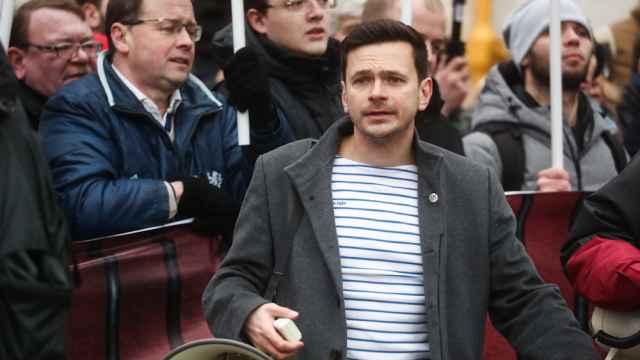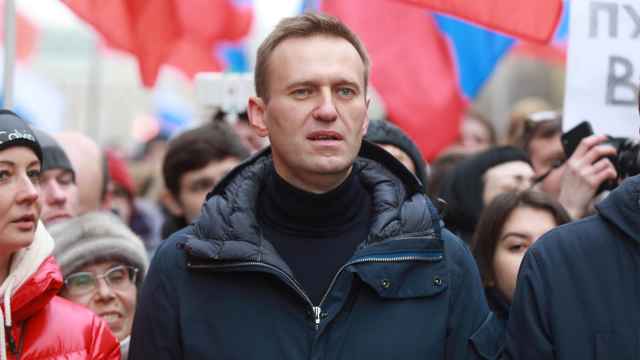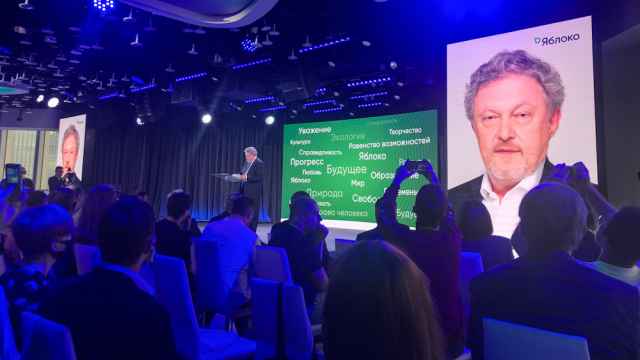A charismatic anti-corruption campaigner, Alexei Navalny has been Russia's leading opposition politician for around a decade, determined to challenge Vladimir Putin's grip on power despite frequent prison stays and harm to his health.
The Yale-educated 44-year-old lawyer — who has said he will return to Russia from Germany on Sunday after treatment there for a poisoning attack in Siberia — has been banned from state television and was barred from challenging Putin in the 2018 presidential election.
Despite being frequently jailed and physically attacked, he has vowed to continue in politics after being poisoned with the Novichok nerve agent in August.
In a video announcing his return, Navalny said he was "almost healthy" and can continue recovering at home after a poisoning he insists was carried out by Russia's domestic security agency, the Federal Security Service (FSB), on Putin's orders.
Navalny has won a young fan base through viral videos exposing corruption among the elites and has more than two million followers on Twitter.
He has grabbed attention with his uncompromising rhetoric and coined phrases such as the "party of crooks and thieves" to slam the ruling United Russia party.
In 2011, the anti-corruption blogger led mass protests when tens of thousands took to the streets of Moscow to protest vote-rigging in parliamentary elections.
Two years later the father of two stood for Moscow mayor, coming second against Putin ally Sergei Sobyanin.
Brother jailed
In 2017, he accused then-prime minister Dmitry Medvedev of massive corruption in a YouTube documentary. That kick-started a fresh wave of protests across the country that was met with police violence and mass arrests.
The same year he had to travel to Spain for surgery after one of several street attacks left him nearly blind in one eye.
Navalny has faced a series of legal cases, which supporters see as punishment for his activism.
In 2013, he was found guilty in an embezzlement case involving a timber deal and given a five-year suspended sentence that disqualified him from running in elections.
In 2014, he was given another suspended sentence, and his brother Oleg, a co-defendant, was jailed for three-and-a-half years in a decision activists likened to a "hostage-taking."
On Monday, papers were filed with a Moscow court asking for that suspended sentence to be converted into jail time, a move Navalny's allies say is an attempt to block his return to Russia.
With the Kremlin tightly controlling the media, Navalny remains a fringe figure for many Russians, who are exposed to the official portrayal of him as a Western stooge and convicted criminal.
Putin has refused to pronounce Navalny's name in public, instead referring to him as "the person you mentioned," among other euphemisms, when asked directly about the opposition leader.
Eye-catching exposes
While barred from mainstream politics, Navalny has sought to expose the lavish wealth of Russia's elites, broadcasting the findings of his investigations to millions of Russians on social media and YouTube.
In his latest expose, Navalny last month phoned a man he said was an FSB agent involved with his poisoning, who appeared to admit to the attack during the call.
But despite tapping into discontent among a largely young urban middle class he is far from a unifying opposition figure, and some have criticised his anti-immigrant nationalist stance.
He scored his biggest recent political success in local elections in 2019, when pro-Putin parties suffered major losses because of a "Smart Voting" plan Navalny put forward after his allies were barred from standing in numerous races.
The tactic calls for voters to support the one candidate most likely to defeat the ruling party and saw Kremlin-linked candidates drop seats in the Moscow assembly.
Navalny's offices have been raided repeatedly since, while his Anti-Corruption Foundation was declared a "foreign agent" and ordered to pay several large fines.
A Message from The Moscow Times:
Dear readers,
We are facing unprecedented challenges. Russia's Prosecutor General's Office has designated The Moscow Times as an "undesirable" organization, criminalizing our work and putting our staff at risk of prosecution. This follows our earlier unjust labeling as a "foreign agent."
These actions are direct attempts to silence independent journalism in Russia. The authorities claim our work "discredits the decisions of the Russian leadership." We see things differently: we strive to provide accurate, unbiased reporting on Russia.
We, the journalists of The Moscow Times, refuse to be silenced. But to continue our work, we need your help.
Your support, no matter how small, makes a world of difference. If you can, please support us monthly starting from just $2. It's quick to set up, and every contribution makes a significant impact.
By supporting The Moscow Times, you're defending open, independent journalism in the face of repression. Thank you for standing with us.
Remind me later.






